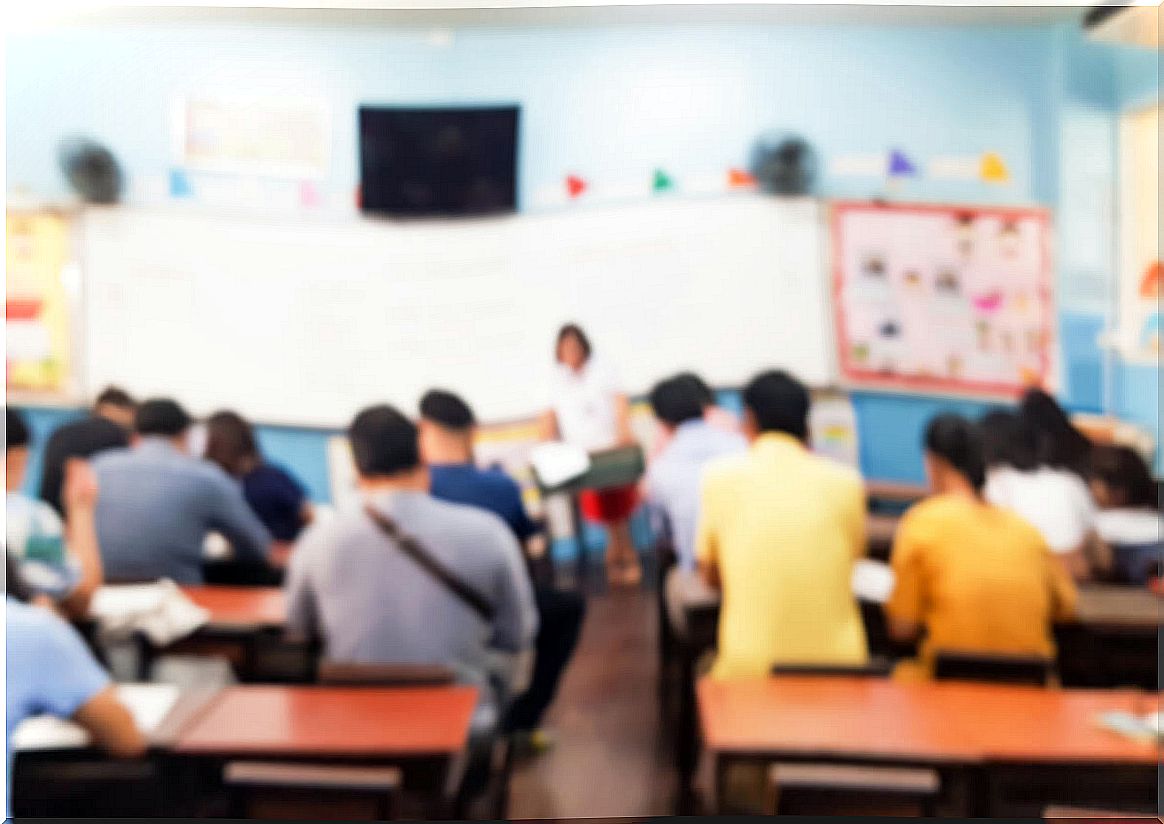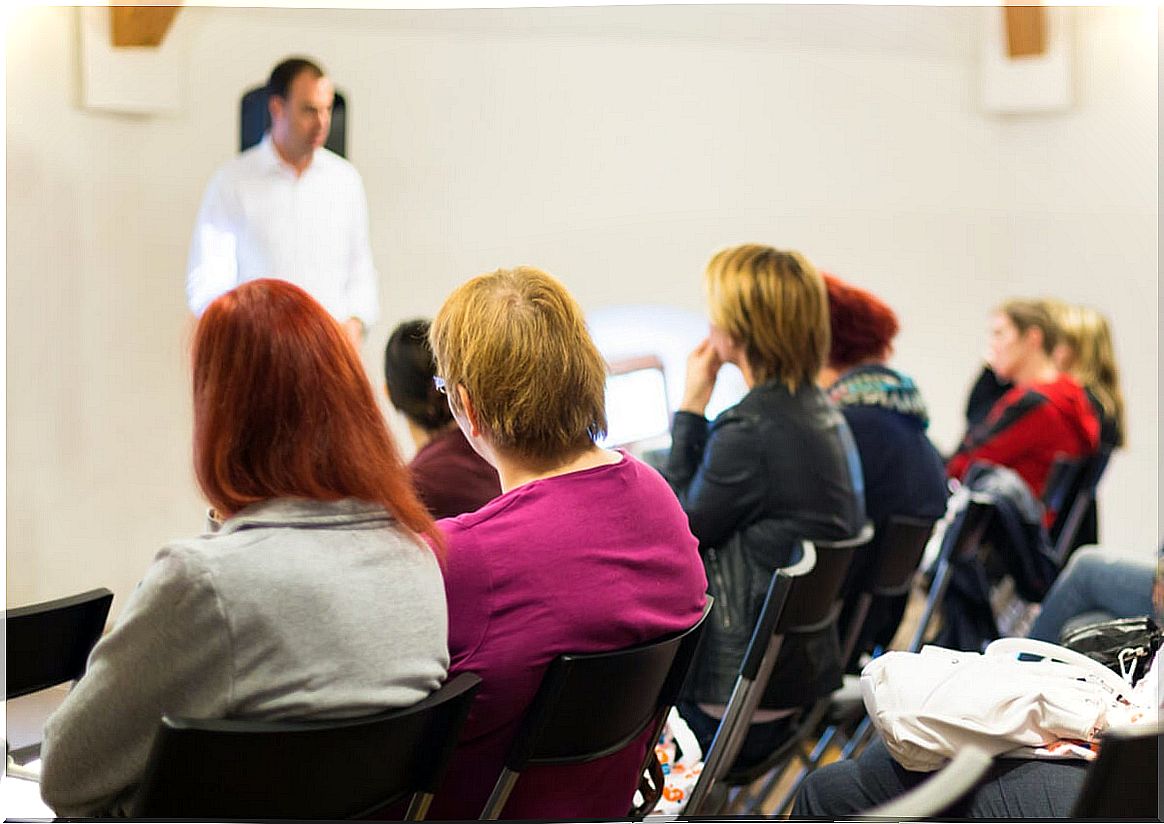Parenting Schools: What Are They And What Are Their Benefits?

Parents’ schools are intended to be a meeting place for parents and educators and are intended to promote the exchange of experiences, as well as reflection on the education of children. They are, in turn, a means of debugging incorrect habits (self-education), dismantling myths and favoring educational guidelines favorable to the development of the child or adolescent, ensuring their understanding, respect and empowerment.
We must bear in mind that it is not a psychological or family clinic, nor is it about activities unrelated to the educational community. In other words, it is a point of union, an anchor, between the school and the family. What else do we know about parent schools? What benefits do they bring to fathers, mothers, children and teachers?

Parent schools: what are they?
Parents’ schools are training programs aimed at fathers and mothers; They consist of voluntary activities through which it is intended to offer educational models and practices that help improve the care and education of sons and daughters, from the family context. That is, they have the objective of advising parents in their work.
Thus, we find different modalities within the parents’ schools: trainings, talks, group workshops, conferences, colloquia. .. All these exercises or practices seek to encourage the participation of parents and teachers, as well as offer applied knowledge, expose shared doubts and favor the interaction between all the agents involved in the formation of the children.
Origin and evolution
Thus, in Spain this type of training is called parenting schools. The idea actually emerged in the United States and France at the beginning of the 20th century, in response to a social climate of concern for children and education in general. Since this movement began, until today, new forms of training programs have appeared, as well as new conceptions of schools for fathers and mothers.
What are they focusing on?
To begin with, it should be noted that parent schools offer work sessions aimed at two objectives. On the one hand, they focus on the education of their sons and daughters (a role they share with the school). At the same time, they consider the family itself as a basic space for coexistence, defined by the people who make it up, by how they relate and by the context in which they are situated.
In this way, through the parents’ schools, work is carried out in two large facets or areas: the education of the child itself and the family itself. What objectives do we find in each of these areas?
Educational field
First of all, we find that the objectives within this area are:
- Provide parents with strategies, skills or other resources that help them participate and improve aspects that condition the development of their sons and daughters (growth, maturation, socialization …).
- Create a space where dialogue, understanding, reflection and knowledge of what it means to be a father / mother and an educator at the same time is promoted.
- Define the role of the family, the school and the social framework, these aspects being complementary to the reality of the children who are, at the same time, students.
Familiar scope
Second, within the family environment, other objectives are pursued:
- Define the importance of the family in the development of its members.
- Promote dialogue and communication as essential elements to modulate family life in a healthy way.
- Define which family space will be the most appropriate as a meeting place and solidarity.
- Build democratic families that educate their children in freedom and responsibility.
- Help parents to adapt to social changes.
What are its benefits?
Parents’ schools have different benefits, both for parents and for teachers (or other types of educational agents). What are some of the highlights? Let’s get to know them:
- Parents’ learning will affect the knowledge of the environment in which their children develop (physical, emotional, social, pedagogical environment …). This knowledge transfers security and confidence to the children.
- By knowing more about the environment of the children (and how to educate them), improvements are produced in child-parent relationships, and positive self-esteem is stimulated in the children.
- Parents’ schools can, in turn, be preventive campaigns for frequent problems at school (for example: bullying or drug use).
- Parents are empowered as they learn to treat their children better and to stimulate their learning.
- The active relationship between school and family is encouraged.
- The acquisition of knowledge and tools to better educate parents, reduces the discomfort of uncertainty and improves their own confidence and self-esteem.

By way of synthesis
As we have seen, schools for parents require the active involvement of the entire educational community, not just parents. On the other hand, they also require programming and evaluation, as well as a commitment from the people who want to attend.
In addition, the sessions (or activities) of the parents’ schools will be developed in small working groups. These, ideally, will be led by an educator, monitor, psychologist …
These are activities that enable spaces for debate and reflection on aspects that may affect the upbringing and education of children. Finally, they are committed to unifying educational criteria and favoring a much more fluid communication between school and family.









